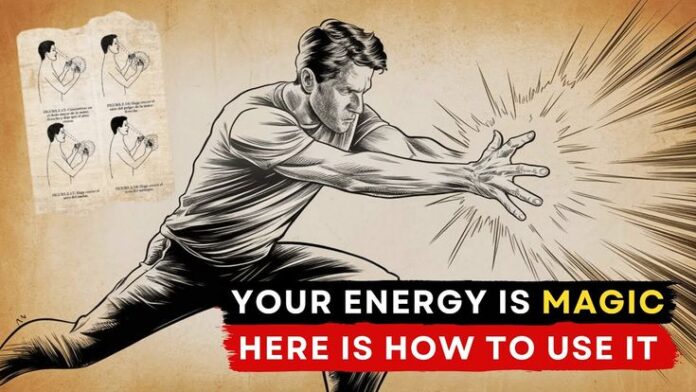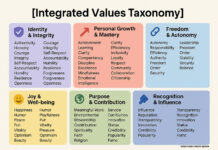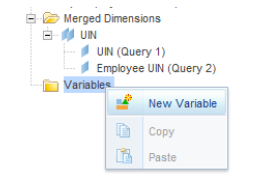1. Biological Rhythms (Chronobiology)
⏰ Your energy and focus levels change throughout the day.
- Morning (after waking): Gentle movement, hydration, and reflection are ideal.
- Mid-morning to early afternoon: Peak cognitive and physical energy — best for deep work, exercise, strategy.
- Afternoon slump (1–3pm): Good for meetings, lighter tasks, admin, or movement.
- Evening: Best for reflection, learning, or low-stress social interaction.
✅ Why prioritize this? Aligning with your body’s natural rhythm makes tasks more effortless and effective.
2. Task Type & Mental Demand
🧠 Match task type to your mental capacity at different times.
- Deep Focus (e.g., prototype, strategic thinking): Early work window.
- Physical Activity (e.g., workout, grooming): When energy is high, often mid-morning.
- Social Tasks (e.g., conversations): When mood and verbal energy are higher.
- Admin (e.g., KPI review): When mental energy is lower.
3. Sequencing Dependencies
🔗 Some tasks are better done after others.
- Hydration before exercise.
- Meditation after physical activation.
- Strategic thinking after mental warm-up (e.g., reading).
- Reflection after all the main work is done.
4. Energy Management (Not Just Time)
🔋 Avoid burnout and sustain energy flow.
- Alternate high and low energy tasks.
- Add rest or grounding (like tea or stretching) after intense sessions.
5. Emotional Momentum
💬 Lead with wins, motivation, or connection.
- Start with small wins to build momentum.
- Incorporate connection (e.g., inspiration sharing, gratitude) to build emotional charge.
- Reserve potentially draining or triggering tasks for when you’re resilient.
6. Meaning and Motivation
🔥 Put high-impact or passion-driven tasks earlier to create engagement.
- What drives you?
- What task makes you feel most “on purpose”?
- What produces visible progress (rewarding your inner scorecard)?
Bonus: Flexibility
🌀 Make sure you can adjust if something unexpected comes up. Don’t build a rigid system that breaks under pressure.
Here is the Daily Dozen tasks spread out across the optimal times of the day, taking into account focus, energy cycles, recovery periods, and task type (physical, mental, social, or creative):
🌅 Morning: 5:30 AM – 9:00 AM
High mental clarity, physical energy rising, great for habits, and priming the day.
| Time | Task | Duration | Type |
|---|---|---|---|
| 5:30 – 6:30 | Sleep (final hour) & gentle wake-up | 60 min | Recovery |
| 6:30 – 6:50 | MeQlibrium + Tea | 20 min | Mental |
| 6:50 – 7:20 | Stretch > Walk > Grooming (SFSV) | 30 min | Physical |
| 7:20 – 7:30 | Hydration: 48oz + turmeric ginger tea | 10 min | Physical |
| 7:30 – 8:00 | Exercise > Superfoods + Vitamins | 30 min | Physical |
| 8:00 – 8:05 | Birthday Pings + Share Inspiration | 5 min | Social |
🔆 Midday: 9:00 AM – 1:00 PM
The brain is at peak productivity. Ideal for strategic, creative, or complex work.
| Time | Task | Duration | Type |
|---|---|---|---|
| 9:00 – 9:40 | Sales Manager (Cash Flow Strategy) | 40 min | Business |
| 9:40 – 10:00 | Face-to-face Conversations | 20 min | Social |
| 10:00 – 10:30 | GetAbstract > Mixergy > Pluralsight > EW List | 30 min | Mental |
| 10:30 – 12:00 | Prototype Work | 90 min | Creative |
🌗 Afternoon: 1:00 PM – 4:00 PM
Physical energy dips; mental focus less sharp—use for admin, reflection, light tasks.
| Time | Task | Duration | Type |
|---|---|---|---|
| 1:00 – 1:20 | Online Shopping + Grooming | 20 min | Routine |
| 1:20 – 1:40 | Inscents + Meditation (Chakras) | 20 min | Recovery |
| 1:40 – 2:00 | Walk/Stretch/Tea (active rest) | 20 min | Physical |
| 2:00 – 2:25 | Breached List & KPI Review | 25 min | Admin |
🌙 Evening: 6:00 PM – 9:00 PM
Best for reflection, gentle learning, relationships, creativity, and winding down.
| Time | Task | Duration | Type |
|---|---|---|---|
| 6:00 – 6:30 | Family or Social Dinner / Conversations | 30 min | Social |
| 6:30 – 7:00 | Read / Light Content or Podcast / Wind Down | 30 min | Mental |
| 7:00 – 7:30 | Evening Grooming + Incense + Calm Tea | 30 min | Routine |
| 7:30 – 8:00 | Gentle Reflection / Journal / Meditation | 30 min | Emotional |
✅ Key Optimization Principles:
- Front-load brain tasks to early-midday.
- Use social energy late morning and early evening.
- Insert micro-recoveries post-lunch.
- Evening is for integration, not ambition.











